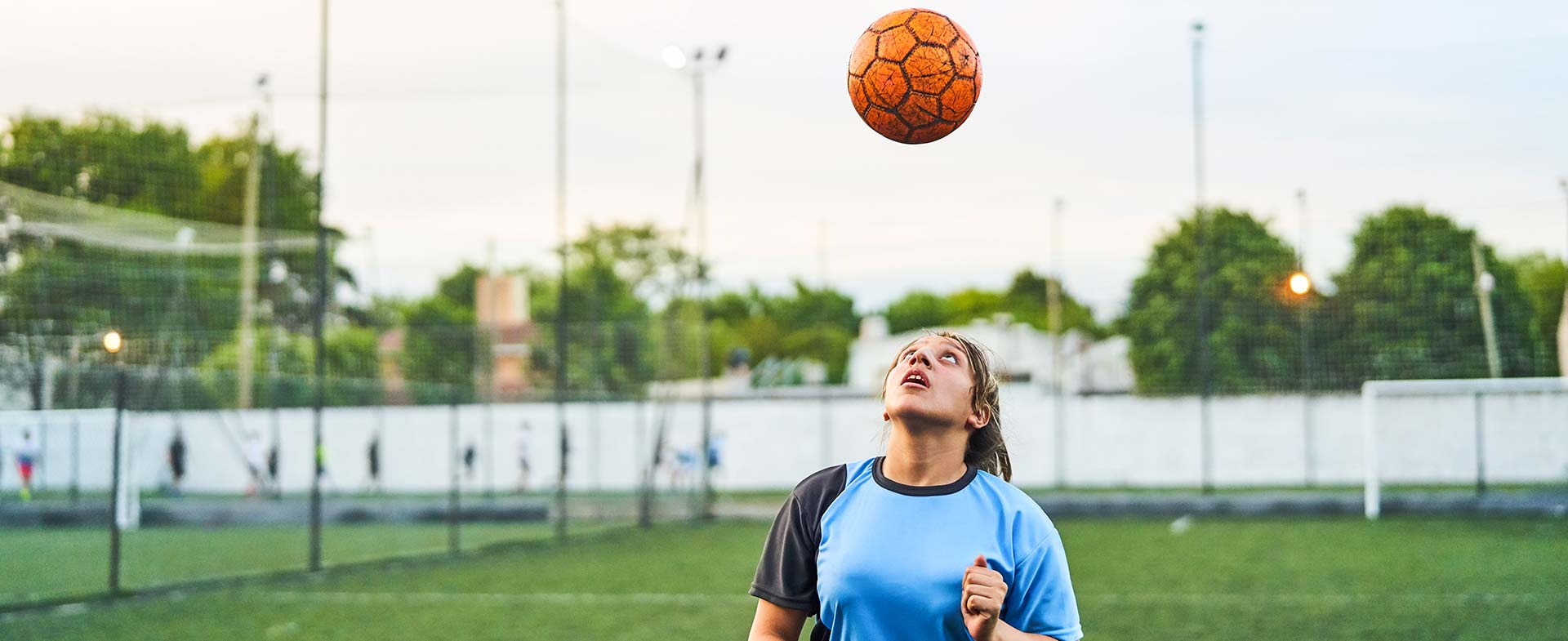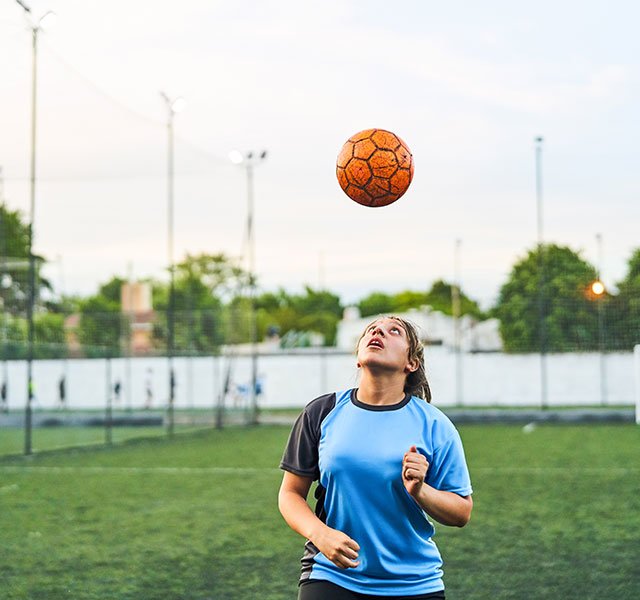More women are participating in high-level contact sports — including lacrosse, soccer and hockey — than ever before. But with that increase comes risk. According to health insurance data, female concussion rates shot up 118% between 2010 and 2015 compared to a 48% hike among male athletes.
Why Head Injuries Among Women Are Increasing
Historically, scientists thought male athletes experienced more concussions than women. Why? Because men were more likely to participate in contact sports like football and hockey. But those assumptions have been turned upside down in recent years. Now, there's increasing awareness that women experience concussions at equal or greater rates than men — and that a woman’s experience during a concussion may be different, too. Here are three potential reasons why:
- Neck strength: Athletes with weaker necks are at potentially greater risk for concussion. When your neck is weak, it’s harder to control your head if you get hit. "It’s more than an age or gender difference. It’s the muscle bulk involved in the task or activity," says Jeffrey Kutcher, M.D., a sports neurologist who treats athletes at the Henry Ford Kutcher Clinic for Concussion and Sports Neurology. It just so happens that, on average, female athletes tend to have smaller, thinner necks than males.
- Hormonal influences: The jury’s still out on whether hormones like estrogen affect the brain's response to injury (women have more estrogen than men). But based on our understanding of the effects of hormones on brain function, fluctuations in hormone levels throughout a woman's menstrual cycle probably influence concussion risk and clinical presentation, says Dr. Kutcher.
- Symptoms: Concussion symptoms differ depending on how the brain was wired before the hit. "If someone has a propensity for migraine headaches, they're more likely to have a concussion with migraine-like symptoms, including headache and light and movement sensitivity," explains Dr. Kutcher. Since women tend to have more migraines than men (after puberty), they may be more likely to experience — and report — concussion symptoms. But then the question becomes, are experts picking up more concussions among girls because they're better reporters?
How To Recognize A Concussion
Parents, coaches and players are increasingly recognizing that a hard hit can have serious consequences. But not every head injury is a concussion.
"When an athlete reports symptoms after a hit, it's important for trainers and medical professionals to consider all possible reasons for the symptoms," says Dr. Kutcher. "You want to make sure you're not assuming the athlete has a concussion, for example, when she's suffering from a migraine or neck injury. Of course, you also want to make sure you're not diagnosing only a concussion when an athlete has something much more serious, like a brain bleed."
A thorough baseline evaluation from a sports neurologist is an important benchmark to have when you're trying to diagnose or manage a concussion. Dr. Kutcher says athletes should get these evaluations annually, at the start of each season. They help trainers and medical staff determine if post-concussion brain changes are life altering or temporary.
To find a sports neurologist or sports medicine doctor at Henry Ford, visit henryford.com/athletes or call 313-972-4216.
Dr. Jeffrey Kutcher is a sports neurologist and the medical director of the Henry Ford Kutcher Clinic for Concussion and Sports Neurology.



